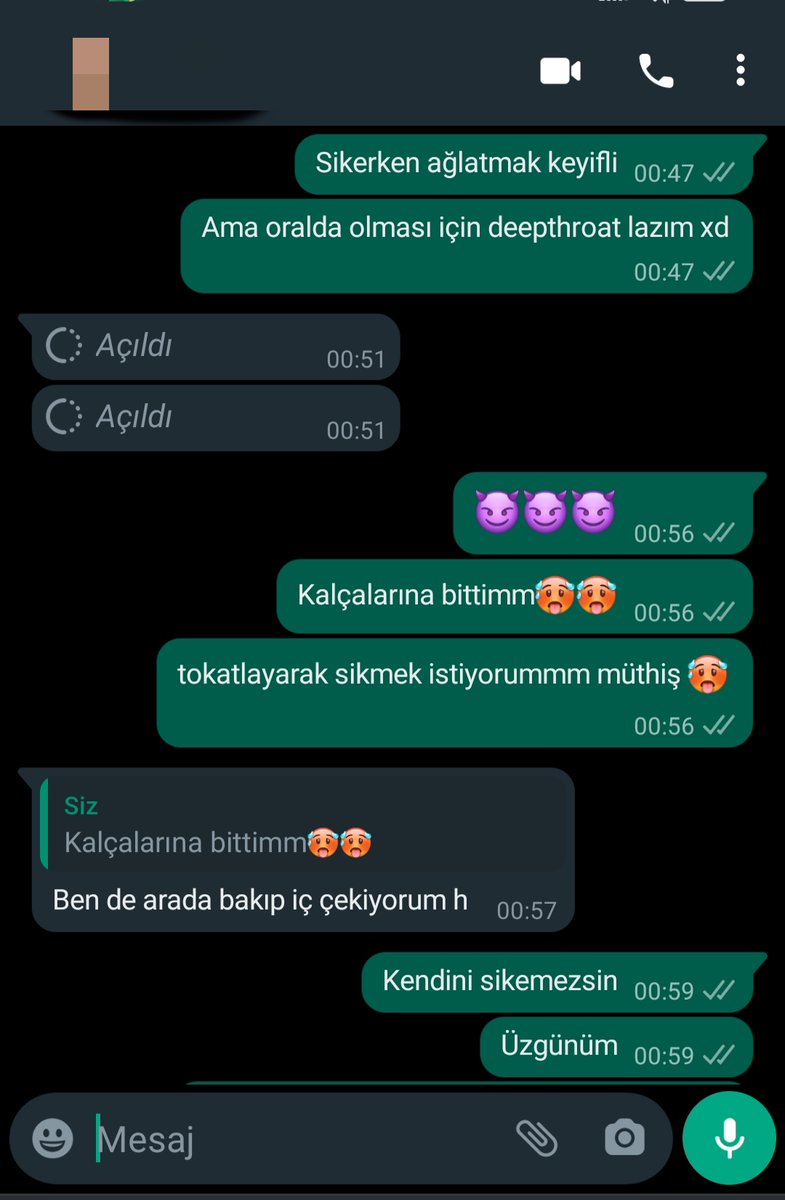Understanding "Türk İfşa Sotwe": A Look At Online Information And Digital Conversations
When you come across terms like "türk ifşa sotwe" in your online explorations, it can spark a lot of questions. This phrase, a bit unusual, actually brings together some really interesting aspects of how we talk about things on the internet. It points to a broader conversation about information, what gets shared, and how different words carry different weights in various settings. So, let's just take a moment to explore what this search term might mean and why it's something people look up.
You know, the internet is this vast space where all sorts of words and ideas bounce around, and sometimes, a particular phrase can really capture the attention of many people. This happens often, as a matter of fact, with terms that seem to hint at something revealing or perhaps even a little bit controversial. It’s almost like a tiny window into the kinds of topics that grab public interest in the digital world, reflecting broader trends in online discussion.
What's quite fascinating is that words themselves have a history, and their meanings can shift depending on who is using them and when. Understanding a phrase like "türk ifşa sotwe" really means looking at its parts and thinking about the bigger picture of online communication. It’s about more than just a few words; it’s about the stories and conversations that unfold around them, and how we, as users, engage with that information. So, let's explore this further.
Table of Contents
- The Word "Türk": A Rich History
- Deciphering "İfşa" and "Sotwe" in the Digital Age
- Why People Search for Terms Like "Türk İfşa Sotwe"
- Online Information and Digital Responsibility
- Protecting Your Digital Footprint
- The Broader Conversation About Online Content
- Frequently Asked Questions About Online Information
- Conclusion: Navigating Digital Discussions
The Word "Türk": A Rich History
The word "Türk" itself carries a really long and interesting history, which is important to consider when we see it used in various online contexts. You know, back in the 19th century Ottoman Empire, the word "Türk" often referred to Anatolian peasants. It's kind of surprising, but the Ottoman ruling class at that time actually identified themselves as Ottomans, not as Turks. This difference in how people saw themselves and how they were named is a pretty important detail from history.
Then, if we look even further back, the very first accepted use of the name "Türk" in academic circles was recorded by Roman historians like Pomponius Mela and Plinius in the 1st century. They wrote about people living east of Azak, calling them "Turcae" or "Tyrcae." So, that's really early, and it shows the term has been around for a very long time, evolving through different eras and cultures, in a way.
Today, "Turkish" (or "Türkçe" in its own language) is the most widely spoken of the Turkic languages, with around 90 million speakers. It's the national language of Türkiye, and that's a huge part of its identity. The history of Turkic communities, those who spoke Turkic languages, stretches back even before the Göktürks, which is, honestly, a vast timeline of shared heritage and language development. The Secretary General of the Organization of Turkic States, for example, recently participated in a United Nations conference, showing how the term connects to current international relations, too.
- Somali Wasmo Telegram
- How Much Does Patience Wolfe Make
- V3 Vegamovies.bitbucket.io
- Vegmovies
- Onlyfans Leaks Lia Engel
It's also worth noting that the name "Türk" appears in other contexts, like with Volker Türk, who is an Austrian lawyer and a United Nations official. He has been the UN High Commissioner for Human Rights since October 2022. This just goes to show how a single word can have many different associations and meanings depending on the context, and that's rather important to keep in mind.
Deciphering "İfşa" and "Sotwe" in the Digital Age
Now, let's talk about the other parts of the phrase: "ifşa" and "sotwe." The word "ifşa" in Turkish means "exposure" or "revelation." It's a term that can carry a lot of weight, especially in online discussions. When something is "ifşa"ed, it means it's been brought into the open, often something that was previously hidden or private. This can be about various things, from exposing wrongdoing to sharing personal details without permission. It's a term that, very often, suggests a certain kind of uncovering.
The second part, "sotwe," is a bit more of a puzzle. It doesn't immediately correspond to a common Turkish word or a widely recognized English term in this context. It could be a misspelling of "software," or perhaps it's a phonetic rendering of another word or a specific platform name that isn't broadly known. Given the nature of online trends, sometimes unique or even slightly misspelled terms become popular search queries. It's honestly a fascinating aspect of how language evolves in digital spaces, and it highlights how quickly new terms can pop up and gain traction.
When these two terms, "türk ifşa" and "sotwe," come together, they create a search query that suggests a search for exposed or revealed content related to Turkish individuals or topics, possibly on a specific platform or using a particular type of "software." This combination often points to discussions around privacy, personal information, and the sharing of sensitive content online. It's a topic that, you know, really highlights the need for careful thought about what we see and share on the internet.
Why People Search for Terms Like "Türk İfşa Sotwe"
People search for terms like "türk ifşa sotwe" for a whole range of reasons, and it's actually quite a complex mix of motivations. Sometimes, people are simply curious. They might have seen the term pop up somewhere else online, or heard about it, and they just want to understand what it means. It's a natural human tendency to want to know more about things that seem to be trending or generating buzz, isn't it?
Then, there are those who might be looking for specific information or content that this phrase suggests. This could range from seeking news about a particular event or individual to, unfortunately, looking for unauthorized or sensitive personal information. It's a rather broad spectrum of intent, and it's why understanding the potential implications of such searches is so important. The internet, after all, is a place where information flows freely, but not all of it is shared with consent or good intentions.
Another reason for such searches could be a general interest in online privacy and digital security. People might be trying to understand the risks associated with information exposure, or perhaps they are researching how such content spreads online. This kind of search reflects a growing awareness of digital vulnerabilities. It's a sign that, you know, people are becoming more aware of the delicate balance between public and private in the online world, and that's a good thing.
Online Information and Digital Responsibility
In our connected world, where information travels at lightning speed, thinking about digital responsibility is more important than ever. When we encounter search terms like "türk ifşa sotwe," it brings to light the broader issues surrounding online content, especially sensitive or personal data. It’s about being mindful of what we consume and what we share. Very often, what seems like a simple click can have far-reaching consequences.
Every time you engage with content online, you're making a choice. This includes deciding whether to click on a link, share a post, or even just read something that pops up in your feed. It's really about being a thoughtful participant in the digital space. For instance, a webpage that offers live broadcasts, like those where you can watch hundreds of television channels, is one thing, but content that might violate someone's privacy is quite another. We have a shared responsibility to foster a safer online environment for everyone, and that's something to consider.
This means being critical of the sources of information you encounter. Just because something is online doesn't mean it's accurate, or even ethical. It's crucial to verify facts and consider the implications of the content you're viewing. Think about the "People Also Ask" sections you see on Google; they often reflect common curiosities, but it's up to us to seek out reliable answers. This approach helps protect not just ourselves, but also others who might be affected by the spread of unverified or harmful information. So, it's pretty clear that our actions online matter.
Protecting Your Digital Footprint
Keeping your personal information safe online is a topic that can't be talked about enough, especially when we consider how easily things can be shared. Every action you take online, from posting a photo to simply visiting a website, leaves a trace. This is what we call your "digital footprint," and managing it wisely is really important for your privacy and security. It's like leaving breadcrumbs everywhere you go, so you want to be careful about where those crumbs lead, you know?
One of the best ways to protect yourself is to be very mindful of what you share publicly. Think twice before posting personal details, photos, or anything that could be used to identify you or those you care about. Adjusting your privacy settings on social media platforms and other online services is a pretty simple step that can make a big difference. These settings give you more control over who sees your content, and that's actually quite empowering.
Also, be very cautious about clicking on suspicious links or downloading files from unknown sources. Phishing attempts and malware are common ways that malicious actors try to gain access to your information. Using strong, unique passwords for all your accounts and enabling two-factor authentication whenever possible adds extra layers of security. It's a little bit of effort, but it offers a lot of peace of mind. To learn more about online safety on our site, you might find some useful tips. It's about being proactive, really, in safeguarding your digital life.
The Broader Conversation About Online Content
The discussions around terms like "türk ifşa sotwe" are part of a much larger global conversation about the nature of online content, privacy, and freedom of expression. It's a conversation that involves individuals, governments, and technology companies all trying to figure out the best way forward. There's a delicate balance to strike between allowing people to share information freely and protecting individuals from harm or privacy breaches. It’s a very complex issue, to be honest.
Societies around the world are grappling with how to regulate online spaces without stifling innovation or legitimate discourse. This includes debates about content moderation, data protection laws, and the role of platforms in preventing the spread of harmful material. It’s a bit like building a new city and trying to figure out all the rules as you go along. News outlets, like those providing "Türkiye ve dünyadan en güncel haberler" (the most current news from Türkiye and the world), play a role in shaping these discussions by reporting on incidents and trends.
Ultimately, as users, our collective choices and behaviors contribute to the kind of online environment we all experience. By promoting responsible sharing, respecting privacy, and challenging misinformation, we can help create a more positive and secure digital world. It's a continuous effort, but every little bit helps, and that's something worth remembering.
Frequently Asked Questions About Online Information
What does "ifşa" generally mean in Turkish?
The word "ifşa" in Turkish typically means "exposure" or "revelation." It refers to the act of bringing something to light that was previously hidden or kept private. This can apply to various situations, from revealing a secret to making public information that was meant to be confidential. It's a term that often implies an uncovering, you know, of something.
How can I protect my personal information online?
Protecting your personal information online involves several key steps. It's really important to use strong, unique passwords for all your accounts and to enable two-factor authentication whenever it's available. You should also be very careful about what you share on social media and other public platforms, adjusting your privacy settings to control who sees your content. Being cautious about clicking on suspicious links or downloading files from unknown sources is also a very good idea. For more detailed guidance, you might want to look at relevant content on digital safety.
Is it safe to search for sensitive terms online?
Searching for sensitive terms online can sometimes lead to encountering content that is disturbing, misleading, or even harmful. While the act of searching itself isn't inherently unsafe, the results you find might not always be what you expect or desire. It's always a good practice to be aware of the potential content you might encounter and to prioritize your digital well-being. Exercising caution and critical thinking when evaluating search results is, honestly, a very wise approach.
Conclusion: Navigating Digital Discussions
Exploring a term like "türk ifşa sotwe" really shows us how complex and layered our online world can be. It highlights the importance of understanding the words we use, the history behind them, and the broader implications of how information gets shared in digital spaces. From the historical context of "Türk" to the meaning of "ifşa" and the mystery of "sotwe," each part contributes to a larger picture of online conversations and concerns about privacy. It's a fascinating area to think about, very much so.
As we continue to engage with the internet, being informed and responsible is truly key. It's about making thoughtful choices about the content we consume and contribute, always keeping in mind the impact on ourselves and others. Being a good digital citizen means staying curious, but also staying safe, and that's a pretty important balance to strike. So, keep exploring, but always with a mindful approach to your online journey.
- V3 Vegamovies.bitbucket.io
- Somali Nude Telegram
- Hanalei Swan The 30m Shark Tank Deal She Turned Down Ndash What Happened
- Aditi Mistry Nipples

TÜRK İFŞA ALEMİ (@ifsacifbi) / Twitter

Unveiling The Secrets Of Türk İfşahane

C2 Elif & Meryem - Türk İfşa Alemi | Türk İfşa, Reklamsız İfşa Platformu